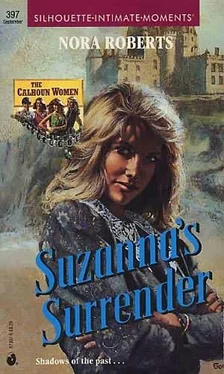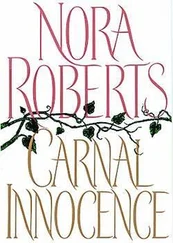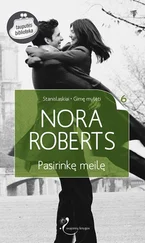Bar Harbor, 1965
The moment I saw her, my life was changed. More than fifty years have passed since that moment, and I'm an old man whose hair has turned white, whose body has grown frail. Yet my memories are full of color and strength.
Since my heart attack, I am to rest every day. So I have come back here to the island – her island – where it all began for me. It has changed, as I have. The great fire in '47 destroyed much. New buildings, new people have come. Cars crowd the streets without the charm of the jingling carriages. But I am lucky to be able to see it as it was, and as it is.
My son is a man now, a good one who chose to make his living from the sea. We have never understood each other, but have dealt together well enough. He has a quiet, lovely wife and a son of his own. The boy, young Holt, brings me a special kind of joy. Perhaps it is because I can see myself in him so clearly. The impatience, the fire, the passions that were once mine. Perhaps he, too, will feel too much, want too much. Yet I can't be sorry for it. If I could tell him one thing, it would be to grab hold of life and take.
My life has been full, and I'm grateful for the years I had with Margaret. I was no longer young when she became my wife. What we shared was not a blaze, but the quiet warmth of a banked fire. She brought me comfort, and I hope I gave her happiness. She's been gone for nearly ten years, and my memories of her are sweet.
Yet it is the memory of another woman that haunts me. This memory is so painfully clear, so complete. No amount of time could dull it. The years have not faded my image of her, nor have they altered by a single degree the desperate love I felt. Yes, feel still – will always feel though she is lost to me.
Perhaps now that I have brushed so close to death, I can open myself to it again, let myself remember what I have never been able to forget. Once it was. too painful, and I lost the pain in a bottle. Finding no comfort there, I at last buried my misery in my work. Painting again, I traveled. But always, always, was pulled back here where I had once begun to live. Where I know I will one day die.
A man loves that way only once, and only if he is fortunate. For me, it was Bianca. It has always been Bianca.
It was June, the summer of 1912, before the Great War ripped the world apart. The summer of peace and beauty, o fart and poetry, when the village of Bar Harbor opened itself to the wealthy and gave refuge to artists.
She came to the cliffs where I worked, her hand holding that of a child. I turned from my canvas, the brush still in my hand, the mood of the sea and the painting still on me. There she was, slender and lovely, the sunset hair swept up off her neck. The wind tugged at it, and at the skirts of the pale blue frock she wore. Her eyes were the color of the sea I was so frantically trying to recreate on canvas. They watched me, curious, wary. She had the pale and luminous skin of the Irish.
The moment I saw her, I knew I had to paint her. And I think I knew, as we, stood in the wind, that I would have to love her.
She apologized for interrupting my work. The faint and musical lilt of Ireland was in the soft, polite voice. The child now in her arms was her son. She was Bianca Calhoun, another man's wife. Her summer home was on the ridge above. The Towers, the elaborate castle Fergus Calhoun had built. Even though I had only been on Mount Desert Island a short time, I had heard of Calhoun, and his home. Indeed I had admired the arrogant and fanciful lines of it, the turrets and peaks, the towers and parapets.
Such a place suited the woman who stood before me. She had a timeless beauty, a quiet steadiness, a graciousness that could never be taught, and banked passions simmering in her large green eyes. Yes, I was already in love, but then it was only with her beauty. As an artist, I wanted to interpret that beauty in my own way, with paint or pencils. Perhaps I frightened her by staring so intently. But the child, his name was Ethan, was fearless and friendly. She looked so young, so untouched, that it was difficult to believe the child was hers, and that she had two more besides.
She didn't stay long that day, but took her son and went home to her husband. I watched her walk through the wild roses, the sun in her hair.
I couldn't paint the sea anymore that day. Her face had already begun to haunt me.
She wasn't looking forward to this. It had to be done, of course. Suzanna dragged a fifty – pound bag of mulch over to her pickup, then muscled it into the bed. That small physical task wasn't the problem. In fact, she was pleased to be able to make the delivery her second stop on her way home.
It was the first stop she wished she could avoid. But for Suzanna Calhoun Dumont, duty could never be avoided.
She'd promised her family that she would speak to Holt Bradford, and Suzanna kept her promises. Or tried to, she thought, and wiped a forearm over her sweaty brow.
But damn it, she was tired. She'd put in a full day in Southwest Harbor, landscaping a new house, and she had a full schedule the next day. That wasn't taking into account that her sister Amanda was getting married in little more than a week, or that The Towers was mass confusion in preparation for the wedding and with the remodeling of the west wing. It didn't even begin to deal with the fact that she had two energetic children at home who would want, and deserved, their mother's time and attention that evening. Or the paperwork that was piling up on her desk – or the fact that one of her part – time employees had quit just that morning.
Well, she'd wanted to start a business, Suzanna reminded herself. And she'd done it. She glanced back at her shop, locked for the night with the display of summer blooms in the window, at the greenhouse just behind the main building. It belonged to her – and the bank, she thought with a little smile – every pansy, petunia and peony. She'd proven she wasn't the incompetent failure her ex – husband had told her she was. Over and over again.
She had two beautiful children, a family who loved her and a landscapingand – gardening business that was holding its own. She didn't even suppose Bax's claim that she was dull could apply now. Not when she was in the middle of an adventure that had started eighty years before.
There certainly wasn't anything mundane about searching for a priceless emerald necklace, or being dogged by international jewel thieves who would stop at nothing to get their hands on her great – grandmother Bianca's legacy.
Not that she'd been much more than a supporting player so far, Suzanna mused as she climbed into the truck. It had been her sister C.C. who had started it by falling in love with Trenton St. James III, of the St. James Hotels. It had been his idea to turn part of the financially plagued family home into a luxury retreat. In doing so, the old legend of the Calhoun emeralds had leaked to the ever – eager press and had set off a chain reaction that had run a course from the absurd to the dangerous.
It had been Amanda who had nearly been killed when the desperate and obsessed thief going by the name of William Livingston had stolen family papers he'd hoped would lead him to the lost emeralds. And it had been her sister Lilah who had had her life threatened during the latest attempt.
In the week that had passed since that night, the police hadn't turned up a trace of Livingston, or his latest known alias, Ellis Caufield.
It was odd, she thought as she joined the stream of traffic, how The Towers and the lost emeralds had affected the entire family. The Towers had brought C.C. and Trent together. Then Sloan O'Riley had come to design the retreat and had fallen in love with Amanda. The shy history professor, Max Quartermain, had lost his heart to Suzanna's free – spirited sister, Lilah, and both of them had nearly been killed. Again, because of the emeralds.
Читать дальше












